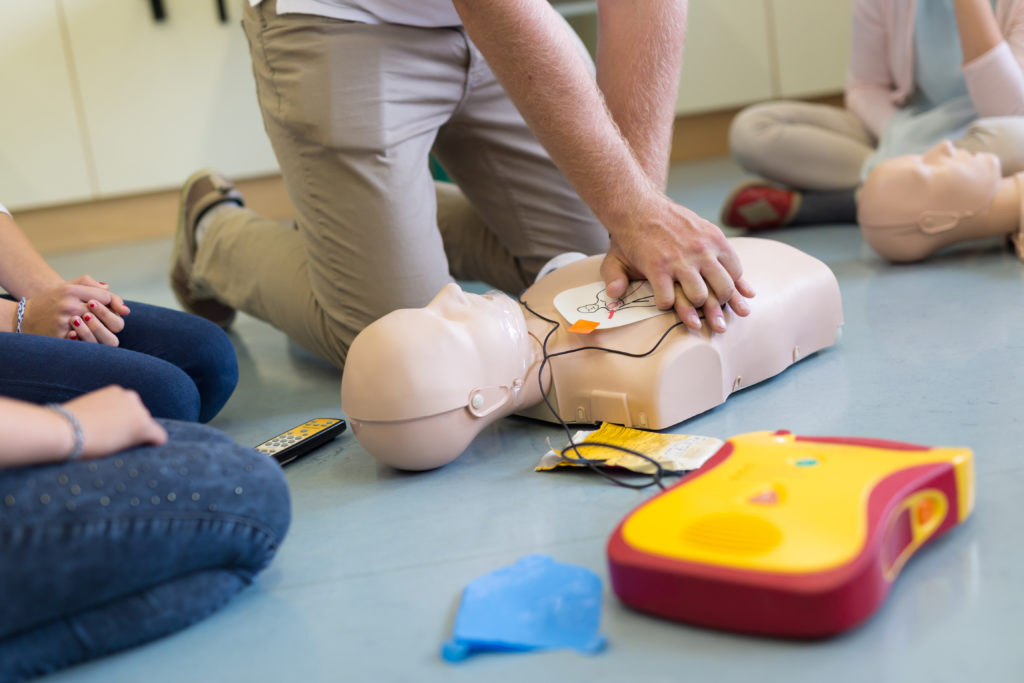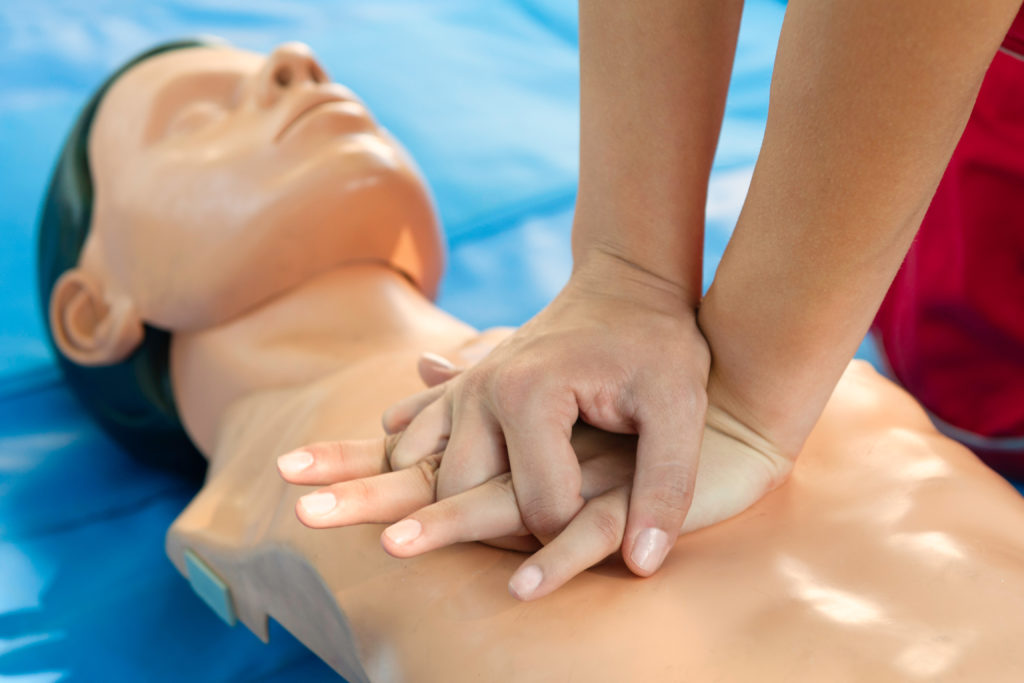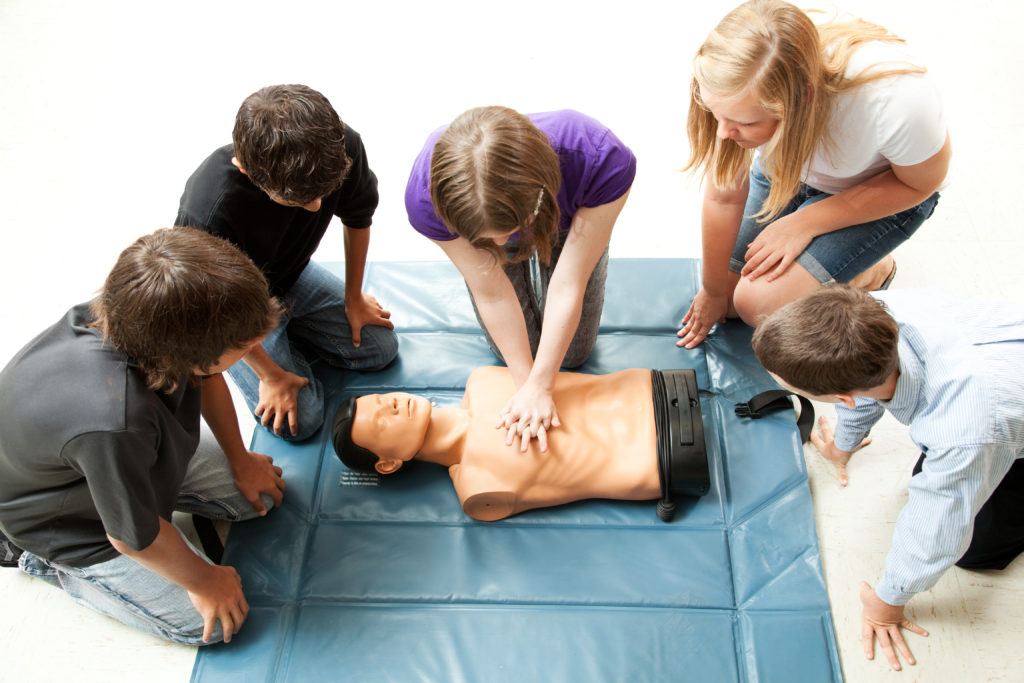6 Emergency First-Response and Safety Courses
First-aid training and CPR certification are invaluable when you’re faced with a life-or-death situation. These types of situations come up more than you might think. More than 350,000 cardiac arrests happen outside of the hospital each year, and about 90% of people who experience a heart attack outside of a hospital setting die, according to the American Heart Association. However, CPR can double or triple a person’s chance of survival when performed immediately.
There are safety courses you can take and certifications you can earn that will help you be prepared for just about anything. Below is a roundup of some basic safety courses and where you can take them.
Keep this in mind: Always seek the help of trained medical professionals in the event of a medical emergency.

AED Training
An automated external defibrillator (AED) can help people experiencing sudden cardiac arrest by analyzing the heart’s rhythm and delivering an electrical shock to help re-establish an effective rhythm. You can find these easy-to-use medical devices in many public places, ranging from office buildings and schools to shopping malls and grocery stores. An AED training course taught by an experienced professional can help you understand how and when to use this device.
Where to learn: American Heart Association; American Red Cross; Texas CPR; check your local YMCA
BLS Certification
Basic Life Support (BLS) certification is required for first responders and healthcare providers, but regular Texans can take courses, too. This safety course teaches CPR for patients of all ages and effective ventilations using a barrier device, among other skills.
Where to learn: American Heart Association; American Red Cross; The University of Texas at Austin’s School of Nursing; check your local YMCA

CPR Training
Learn how to assist adults and children during medical, breathing, and cardiac emergencies. Depending on the course option you choose, you can learn both hands-only CPR and CPR AED.
Where to learn: American Heart Association; American Red Cross
First Aid Training
This type of training will give you the knowledge base and ability to help people in need as they wait for medical professionals to arrive at the scene. You’ll learn first aid best practices for several conditions, including asthma emergencies, heart attacks, head injuries, and seizures.
Where to learn: American Red Cross; check your local YMCA

Other Safety Courses
Babysitting Training: Child-care training is essential if your teen has a summer job babysitting. Encourage them to take an online or in-person course from the American Red Cross to learn how to understand and manage behaviors, choose age-appropriate activities, and keep kids safe.
Defensive Driving: Use your Texas Farm Bureau member benefits for a $25 defensive driving course. This is a great refresher safety course that can – in some cases – help you dismiss a driving ticket and reduce your insurance premium.
A crisis can emerge at any time. Make sure you and your family know what to do in case of an emergency.
© 2022 Texas Farm Bureau Insurance



